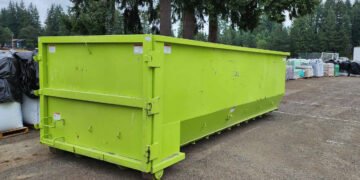Memory care is an unfortunately common aspect of elderly life. There are nearly 29,000 assisted care facilities in the United States. Dementia and memory loss can be devastating obstacles to navigate, especially if it is affecting your family.
But a memory care community can be a wonderful solution for long-term care. Tailored communities with a variety of options, such as exercise facilities and healthy meals, provide comfort as well as care. And with licensed staff members, you know your family member is in good hands.
Learn more about assisted living and memory care facilities in this article.
When to Consider Memory Care
We all struggle with memory loss now and then. But there’s a certain level that constitutes professional involvement.
Dementia and Alzheimer’s are serious diseases that take a toll on those living with the diseases. The family members of those with these memory loss diseases can also feel a certain level of pressure to keep their family safe.
This is where memory care shines its brightest. For those who are no longer able to live independently, relying on professionals to care for them allows for a certain level of peace of mind.
Medication management, meal service, housekeeping, and 24-hour observation and care are a few of the reasons to consider memory care facilities. Tasks that a busy family may otherwise take on can be left to professionals who are expertly trained to work with memory loss patients.
Read Also : Add Colors to Your Home with These Flowers
Families can also rest easy knowing their older family members will receive expert medical care as needed.
If you are considering a memory care community for someone in your family, start off with a Google search. Websites such as find continuing care can be a great tool to find the right care facilities.
Memory Care Community Vs. Memory Care Facility
There are a variety of facets to the memory care industry.
Assisted living generally covers medical assistance, medication management, and a few other aspects. Housekeeping, meals, and other points are sometimes included in assisted living care.
Assisted living facilities can also include specific wards dedicated to memory loss patients. And there may be a benefit to considering an assisted living facility before a specific memory care facility.
If your family member struggles with completing some daily tasks on their own, an assisted living facility may be a better starting point. The memory care community around assisted living can make the transition to more full-time memory loss care much easier.
A standalone memory care facility may be too extreme and nerve-rattling for some individuals who do not require that level of care quite yet.
Finding the Best Solution
There is no shame in seeking help with caring for a family member suffering from memory loss. If you are not able to take care of yourself, how will you be able to take care of someone else?
Utilize Google for resources in finding an appropriate memory loss facility.
It’s also worth checking your local community websites and newspapers for more leads on care facilities in your area.
Read Also : 8 Things to Consider When Evaluating a Senior Living Center






























































